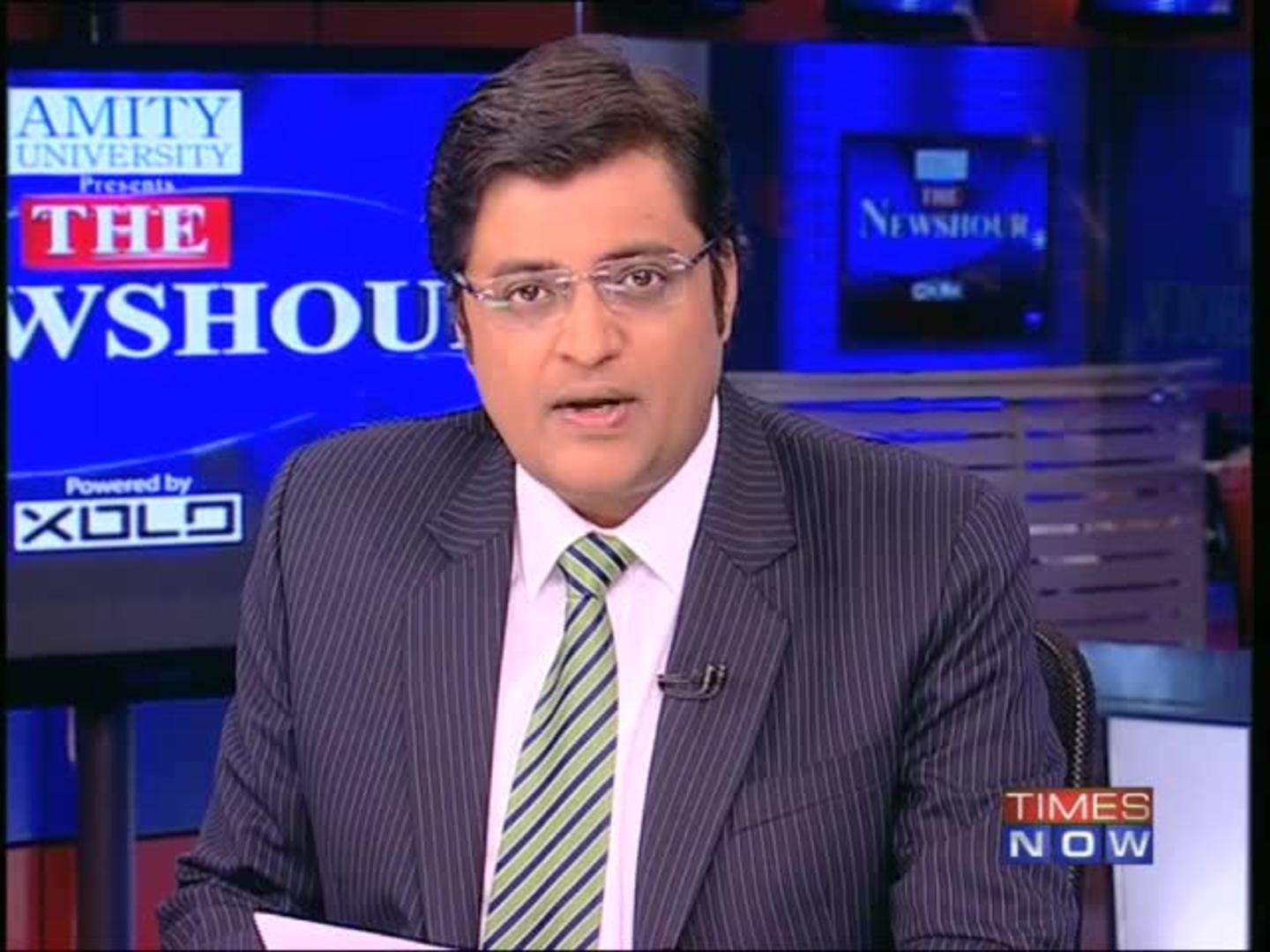Disclaimer: The consequence of every opposing thought is not “anti-national” or “presstitute”. Before you stock up bottles of inks to throw at every writer who contrasts your opinions, take a moment to remind yourself that you have spent hours on the Internet calling India a tolerant country. Just remember that.
Now read further.
The JNU debate has pretty much consumed everyone by now. It’s interesting how things have boiled down to choosing sides and objectivity has become like Sonam Kapoor in the Coldplay video, nowhere to be seen.

The JNU issue first came to light when the bastion of vocal cords, Arnab Goswami dedicated his prime-time news program, The Newshour Debate, to calling JNU students anti-national. For a middle-class right-leaning audience, Arnab’s angst is the biggest source of shaping public opinion. Arnab Goswami, who is not known for his objective take on issue-based discussions, has influenced millions of his viewers in the past and continues to do so.
While his rejection of the rules of journalism are lauded by some, it has some serious repercussions on the lives of his subjects, as is evident in the issue at hand.
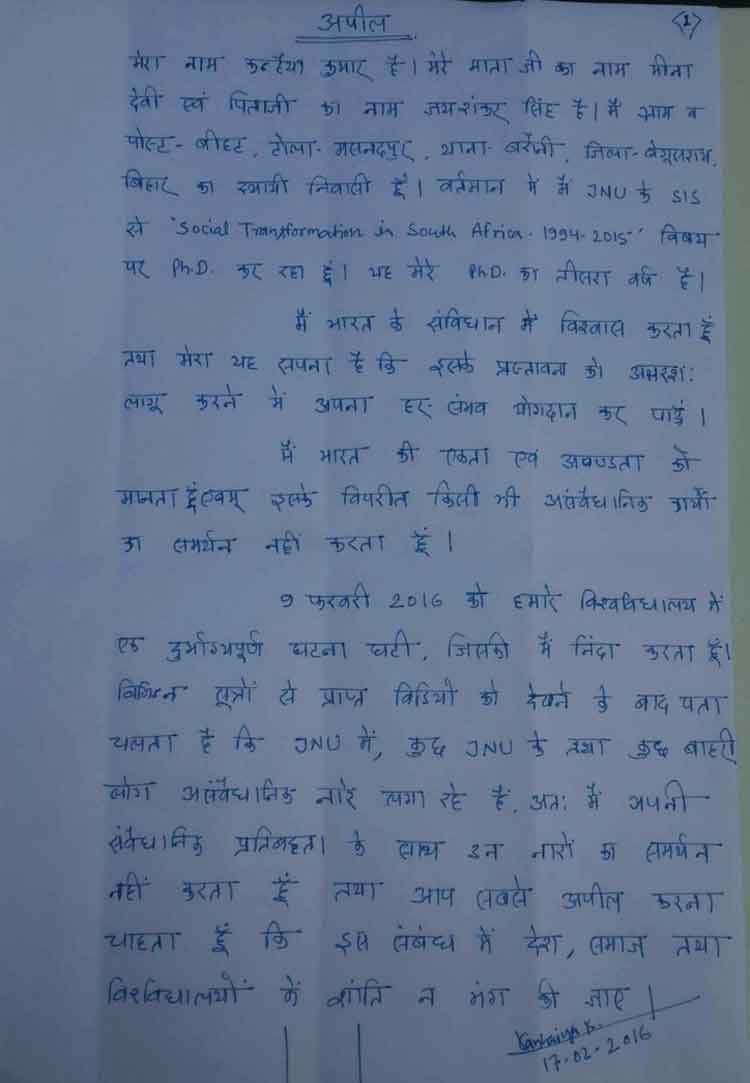
Arnab invited JNU students on his show to discuss anti-India slogans that were shouted in the campus. While the credibility of the slogans remains to be deciphered, Arnab chose to jump the gun and called the student panelists anti-nationals. That night, his voice resonated with other panelists and millions of his viewers alike.
Arnab has his way of “reporting” issues and his opinions become the written word for millions of viewers watching the show at home. And before they even get the chance to gather information from both sides of the spectrum, a popular (read strong) mass opinion is already formed.
And once again, somewhere between opinions and name-calling, information got lost that night.
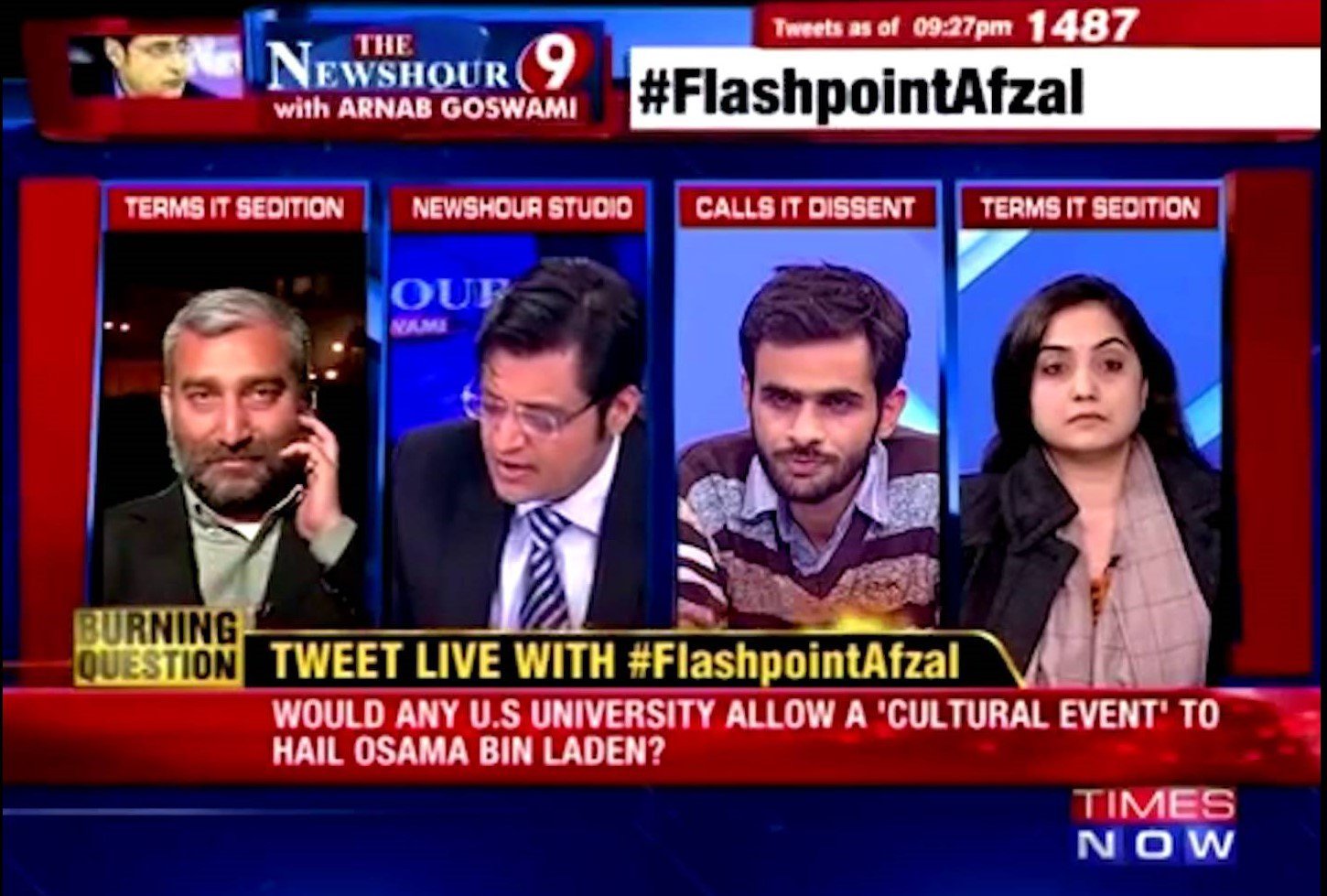
This pattern of un-judicial allegations is termed as “media trial”, something that has swallowed the whole of JNU since the show was aired. As a result, political polarization is at an all-time high and disagreements have taken the shape of threats. People have been beaten up, auto-drivers have offered to drive students to Pakistan instead of JNU and journalists have met with fists. There are a lot of people who are happy with this level of human bonding.
We, however, have dared not to be okay with such bro-mance.
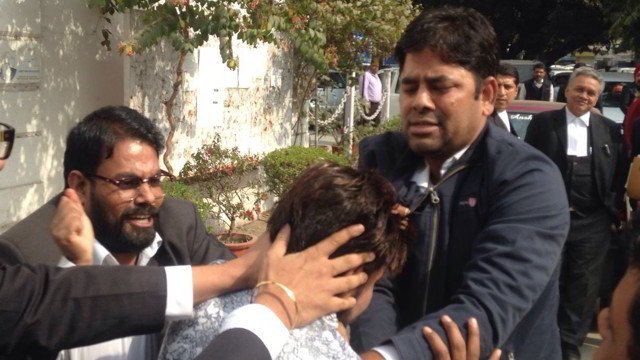
What’s funnier is that as Arnab and his viewers labeled JNU students as anti-nationals, the whole issue has come boomeranging back to where it started: right and wrong.
Over the past few days, video evidences have been getting accumulated on the Internet that dismiss JNUSU’s president Kanhaiya Kumar’s involvement in “Anti-Indian slogans”. And that’s where Arnab’s school of journalism finds itself stuck between half-baked opinions and a rock.
Foolishly, consumers of national news expected Arnab Goswami to be the carrier of un-manufactured information. Instead, they were provided with a list of people to call “anti-national”.
Hence, as of 18th February 2016, Kanhaiya Kumar and other JNU students are popularly known to the masses of the country as “anti-nationals”, “enemies of the state” and even “traitors”.
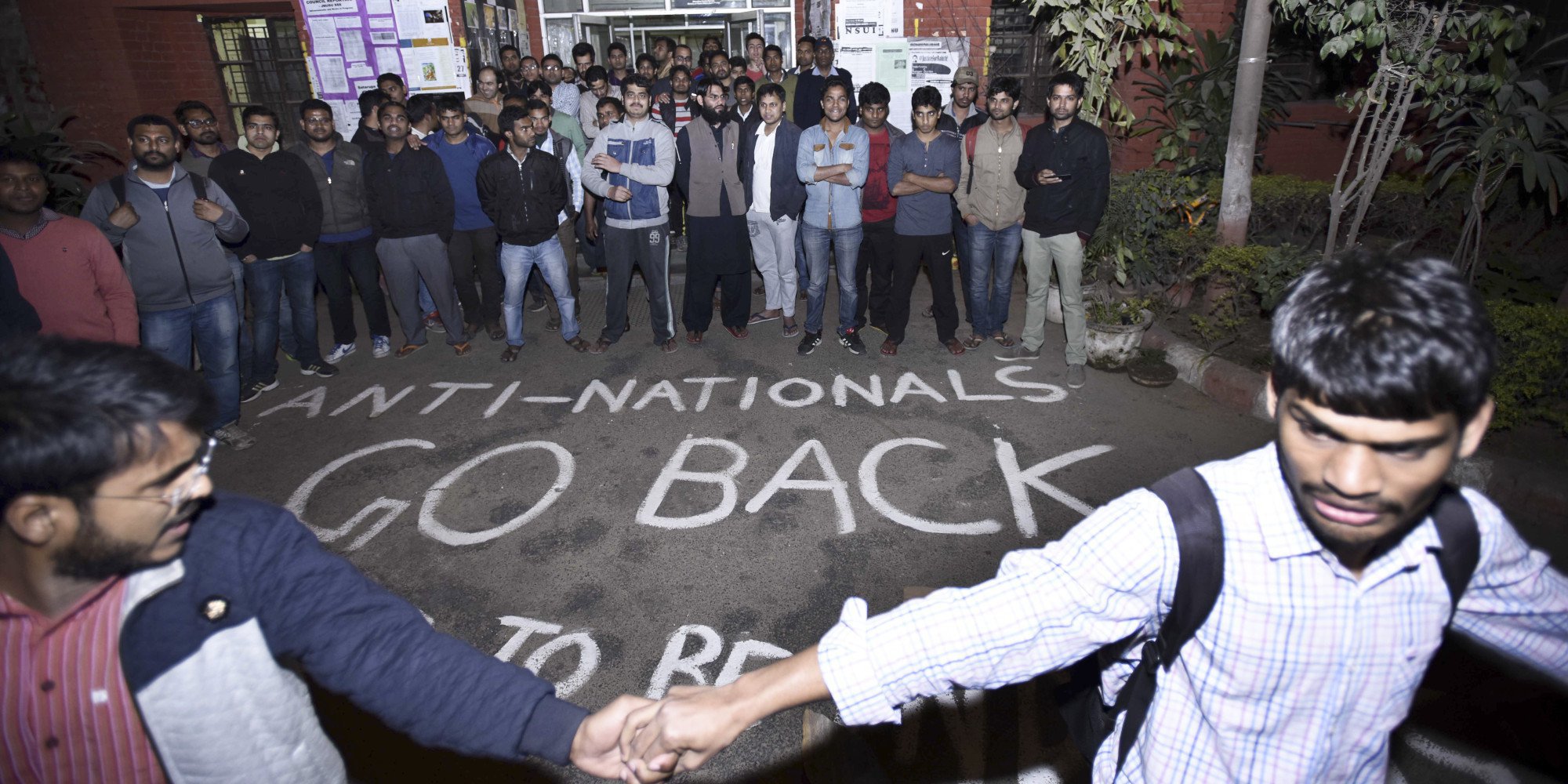
One wonders would they still be subjected to such name-calling had Arnab chosen to take another path to report the issue – to have a conducive discussion around the issue?
Would Kanhaiya Kumar still be beaten up by MLAs and lawyers while being taken to the Supreme Court? Most of all, would there be a nation-wide hate spawn against a PhD student from Begusarai, Bihar?
The question arises, who’s anti-national in this whole fiasco – students who are yet to be confirmed as shouting slogans, or India’s leading news anchor who manufactured public opinion to suit his angst; angst that shouldn’t even have made its way to the national television?
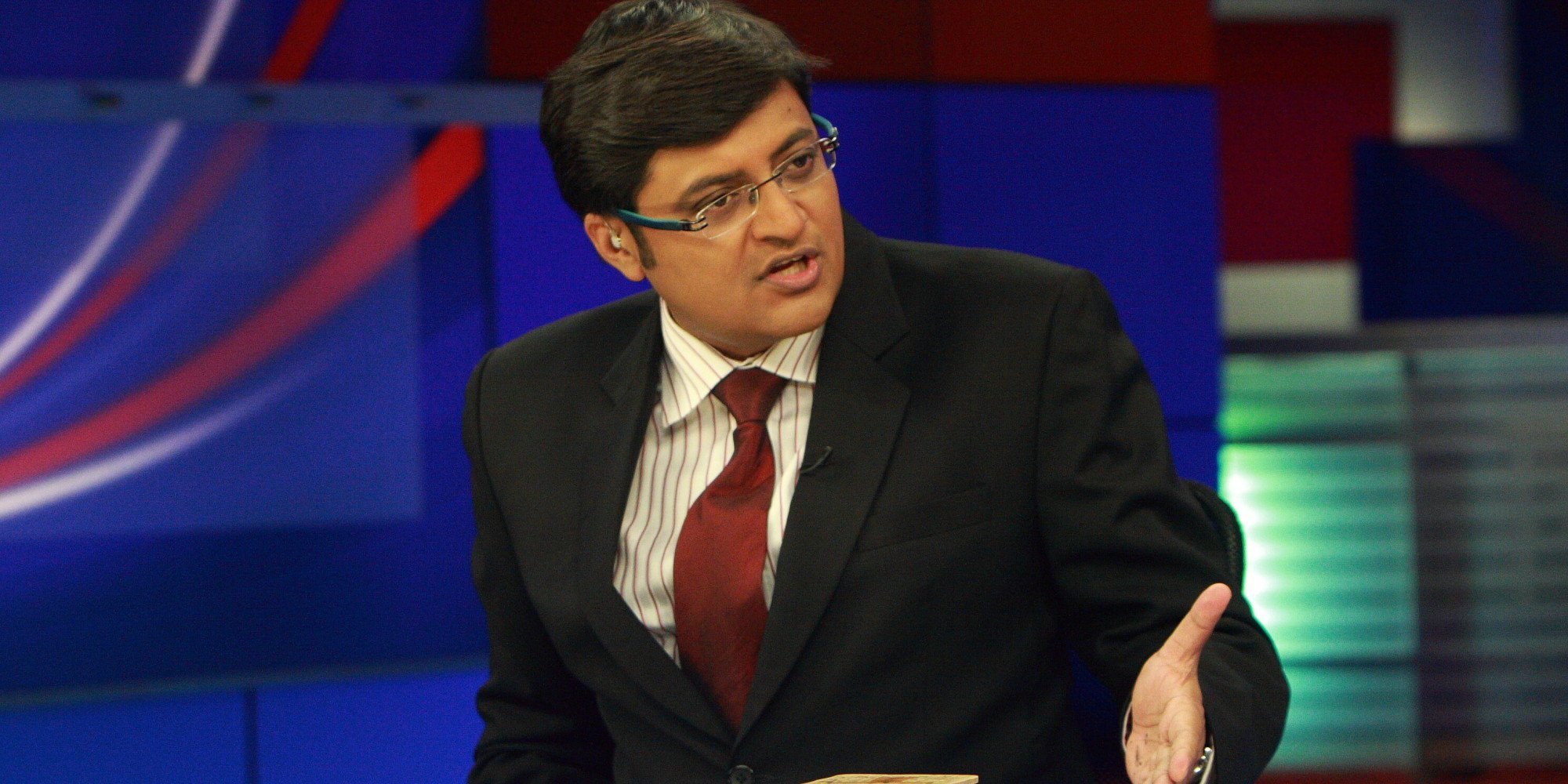
It’s about time Arnab stops being the voice of primitive human instincts at every incident.
Your first instinct to a situation will not always be the correct reaction and Arnab, being the senior journalist that he is, would need to adapt to the concept of weighing facts against opinions.
While the issue was still being explored by other sections of the media, Arnab placed a safe bet by putting his viewers’ sense of national pride against the relatively lesser known concept of dissent. And introduce Lance Naik Hanumanthappa’s example in the middle and Times Now emerges as the winner of TRPs.
As Arnab’s Newshour debate found its way to everybody’s Facebook timeline, the damage to JNU students had already been done. A damage that looks too deep to be undone in the foreseeable future.
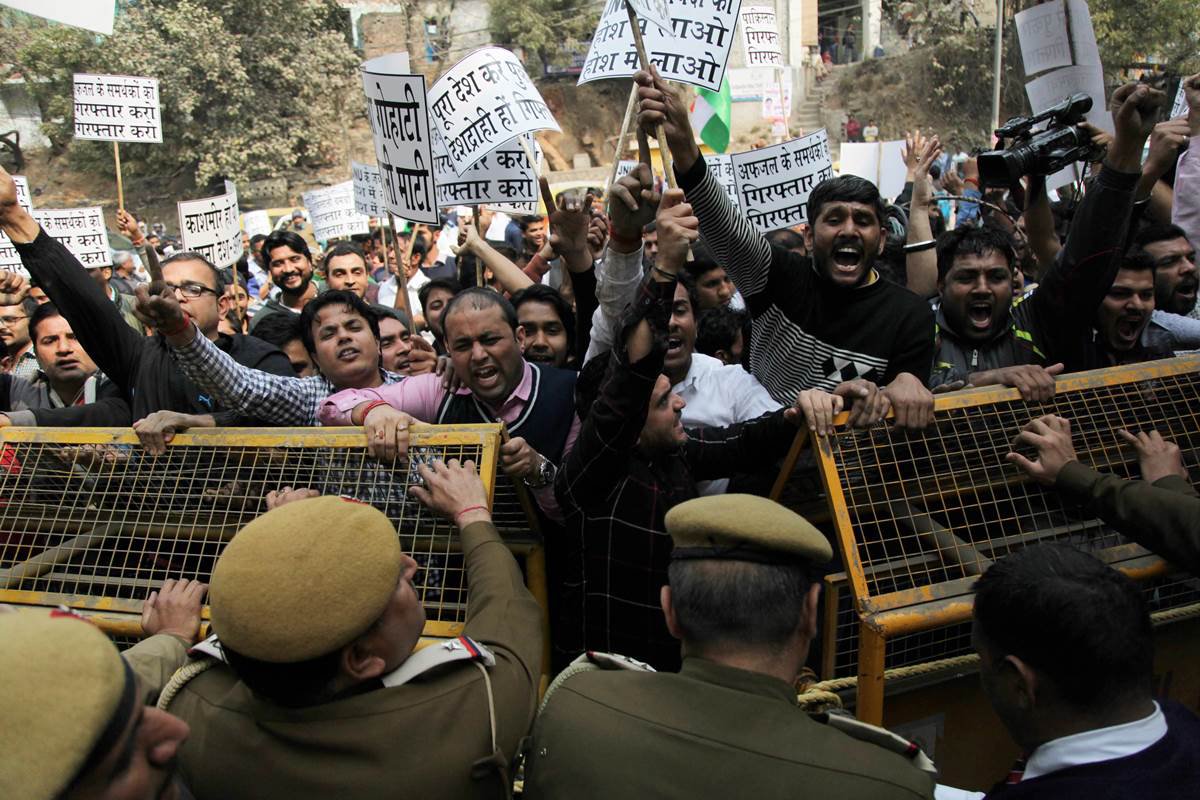
Arnab’s stand against “India’s enemies” got the better of him and his personal half-baked opinions stacked him on the same side of the political class that he bashes on his show.
His favorite weapons: vocal cords and hashtags were once again successful in the fight for (read: against) the truth.
A day after Arnab’s show went viral on the Internet, students of Jawaharlal Nehru University protested against this media trial. Arnab’s voice fueled the common man’s angst so much that the “country’s collective conscience” became the scale of judgement for these students, which is ironic because this is what students of the JNU were originally protesting against.
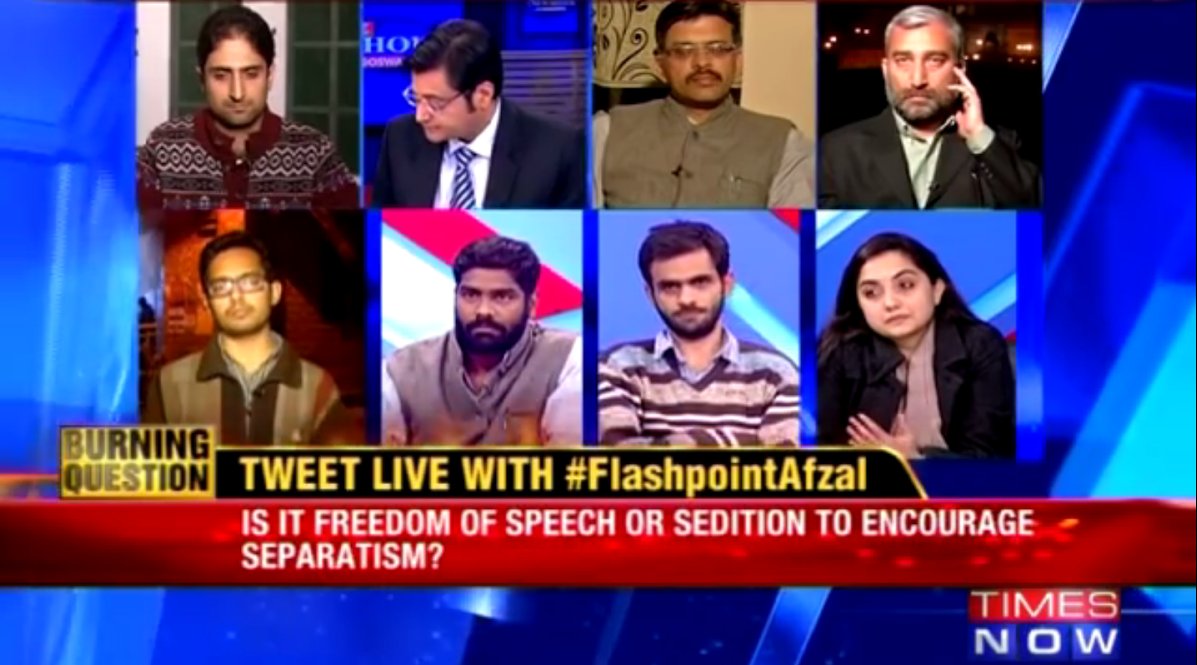
Frequent disruption and cutting short of arguments is as much a part of Arnab’s show as thought-provoking conversations are of JNU.
One drives our national conscience, the other violates our nationalism by questioning the lawmakers.
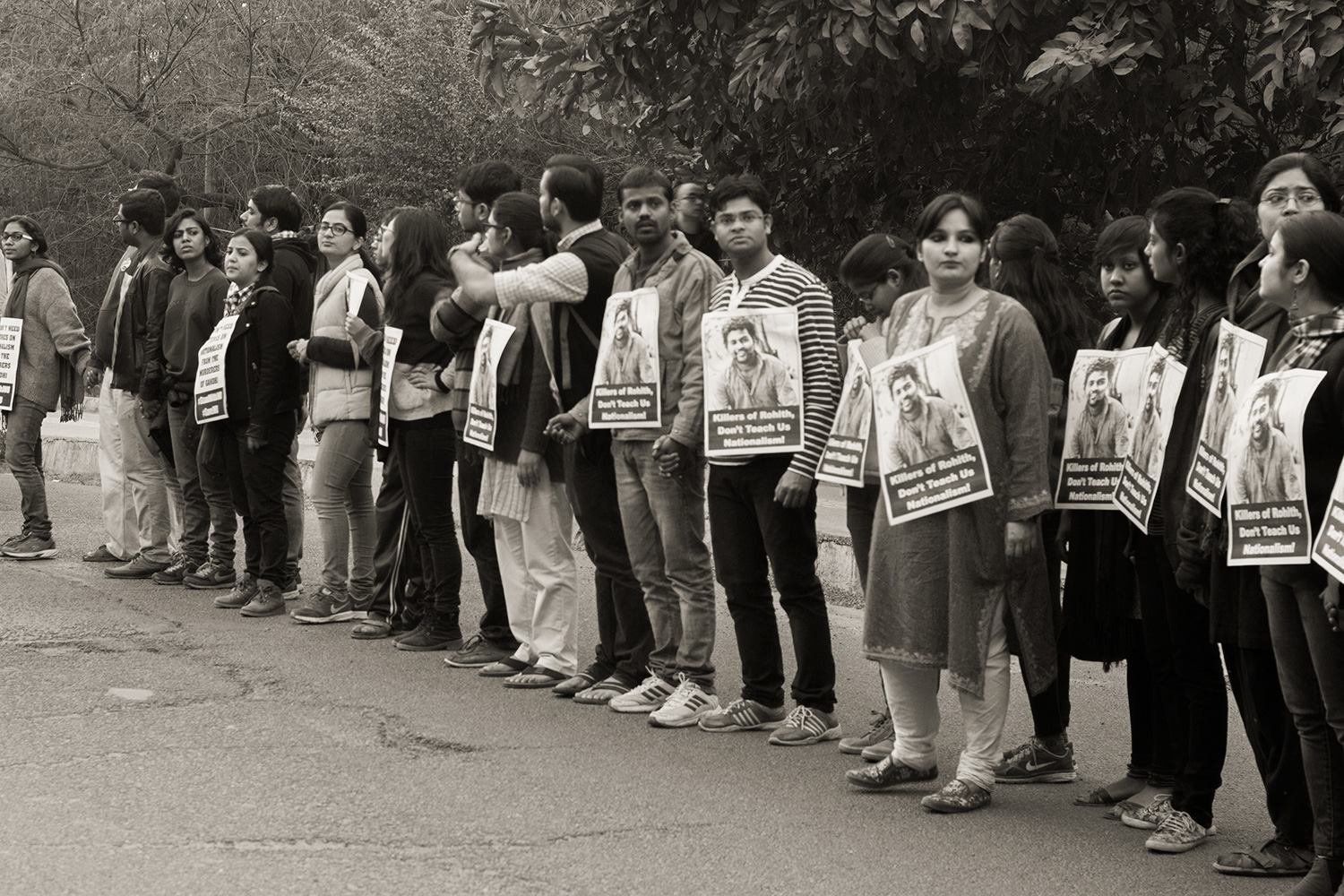
During this “pro-Afzal/Anti-Indian” name calling, Patiala House Court played the role of Ranchi’s Cricket pitch where the hosts take matter into their own hands and the visiting party gets beaten up.
Arnab was also nowhere to be seen with his fellow journalists but was sure to replicate the chaos of his show on this issue. To make matters worse, his distance from the journalist fraternity after the incident at the Patiala House Court has not gone down too well with fellow journalists.
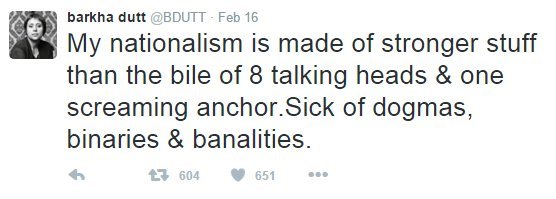

Sensationalizing an incident way beyond its premise may very well be Arnab’s own personal nationalism, but how fair is it to impart the same nationalism on his viewers instead of letting them form their own boundaries of the word?
The inability to be objective while reporting an issue against the obvious commercial profits from his viewership made the journalist look like an angry mob instead of being the reflection of our times.
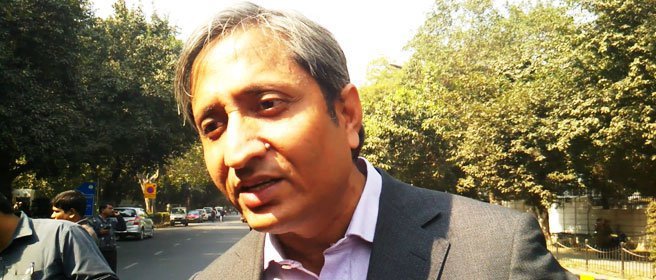
Arnab used Lance Naik Hanumanthappa and David Headley’s revelations to shape a national opinion of anger, hatred and disgust against the JNU students.
Instead of alarming the students or understanding their radical thoughts, Arnab decided it would be convenient to essentially turn the mob against the protesters. Now that was as smart as it was driven by his personal angst. Law of the land does not function on emotions, but Arnab does.
A young Arnab may have chosen to dig for facts and bring a non-judgmental picture to his viewers, but not Editor-in-chief Arnab.
Editor-in-chief Arnab calls people whatever the hell he wants and allows the discourse to turn ugly in the name of nationalism.
